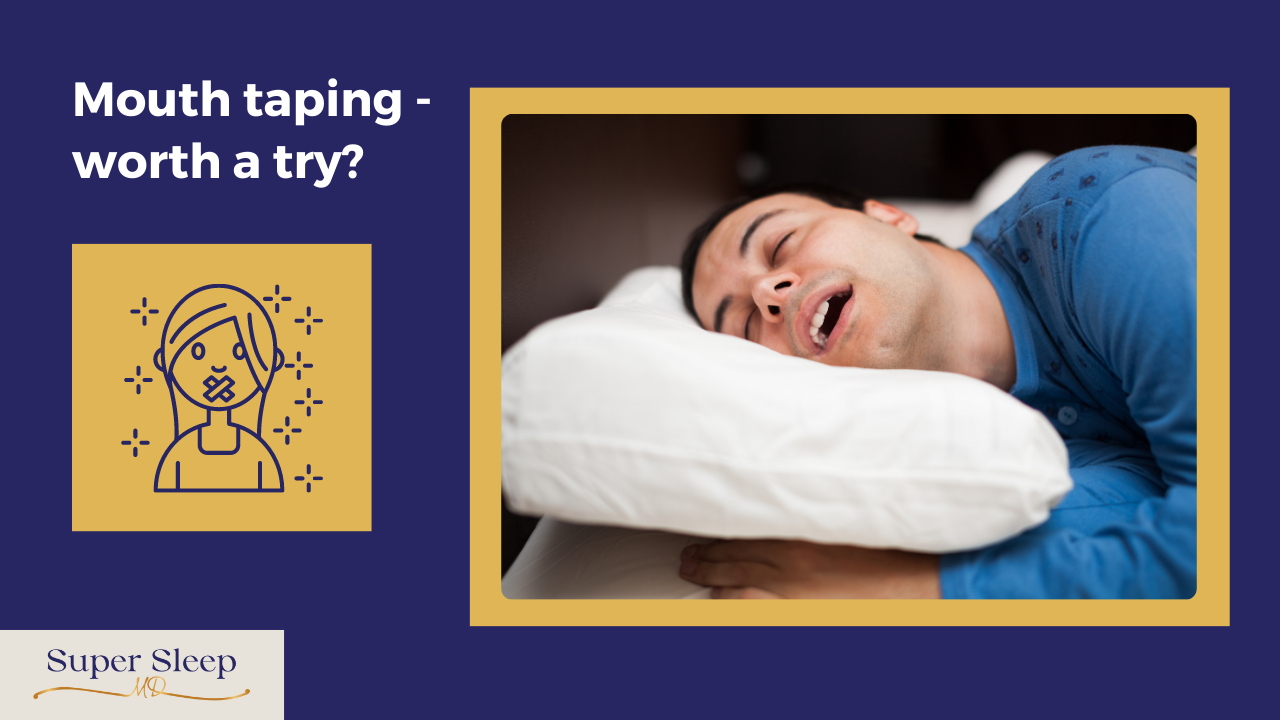60: Mouth taping- worth a try?
May 06, 2023
Mouth taping is recently a viral trend and many people are reporting better sleep with this practice. It’s been done by CPAP users for quite a while to keep the mouth closed while using a nasal CPAP mask.
I’m a big advocate for breathing through your nose during sleep. The nose was made for breathing. It filters allergens and particulate matter. It warms the incoming air before it travels to your lungs. It humidifies the air to be more comfortable. The nose also produces nitric oxide, a stimulant of the cardiovascular and immune systems. There is even evidence that nasal breathing lowers blood pressure, augments immunity, improves cognitive function, and reduces anxiety.
On the flip side, mouth breathing during sleep comes with problems. Your oral mucosa will dry out and become uncomfortable– it’s not made to accommodate constant airflow. Your breath will smell, and you can get a sore throat. You’re at risk for teeth and gum problems because a constantly open mouth isn’t as lubricated as it should be. There are even links to mouth breathing causing reduced concentration and tiredness. Ironically, mouth breathing can cause nasal congestion and perpetuate mouth breathing.
Mouth taping can help with snoring. In a study of people with mild obstructive sleep apnea, it was noted that there was a slight change in the angle of the palate and the tongue. These changes led to significantly less snoring and fewer instances of lapsed breathing. But the effect isn’t enough to resolve sleep apnea, especially in the moderate to severe range. The internet is full of many claims, but so far there is not enough science to recommend mouth taping.
Taping your mouth shut can cause a restriction in taking a very big breath. This is a problem if you have a blocked nose. If you need a big breath during sleep while your mouth is taped, you are likely to wake up. Sometimes people find themselves ripping the tape off urgently. Fold over a corner of the tape to make removal easier.
If you try mouth taping, remember to use only medical-grade tape. In other words, you want a porous tape that was made for human skin. This helps to minimize the chances of an allergic reaction or skin irritation, but that risk is never eliminated. Don’t use duct tape or any other kind of household tape. Try it out while you are awake to see if you experience any negative effects.
Finally, ask yourself if mouth taping is a band-aid to an underlying problem of breathing through the nose. Are you mouth breathing because your nose is congested with chronic allergies? Do you have a structural abnormality in your nose, such as a prominent deviated septum or enlarged nasal turbinates? Consider finding and treating the root cause of mouth breathing. See an allergist or an ENT (ear/nose/throat) doctor for evaluation.
You've got sleep problems...
so is it time for a sleep study?

